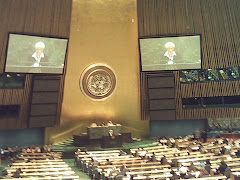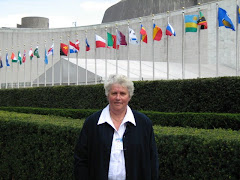October 14
SPACE TECHNOLOGIES INDISPENSABLE TO CHALLENGES OF CLIMATE CHANGE, FOOD SECURITY,
HEALTH, FOURTH COMMITTEE HEARS DURING DEBATE ON PEACEFUL USES OF OUTER SPACE
Space Technology Like Double-Edged Sword -- It Could Serve World or Inflict
Devastating Harm, Delegates Also Told, With Many Opposing Militarization of Space
JOANNA GASH ( Australia) said that concerns over global food security had arisen out of a complex set of drivers that influenced both food supply and demand, including population growth, dietary changes associated with economic development, climate variability and the diversion of food commodities to biofuels. Space-based observations would play a critical role in all of those food supply issues through the use of remote sensing to characterise productivity constraints, raise resource efficiency, and improve agricultural yield.
Providing numerous examples of how space technologies were currently supporting a range of Australian research programmes, she said that Australia was seeking to maintain and grow the productivity and sustainability of its farming systems. While Australian agriculture faced significant challenges in terms of climate variability and change, Australian agricultural research and development was making active use of remote sensing to search for more efficient resource use and sustainable land management. Her country was also engaging in a range of international partnerships to apply remotely sensed information to the management of global resources and address the food security challenge.
She said her country was looking to improve its investment in agriculture research, in order to lift agricultural productivity. Precision images projected from satellites made it possible to predict changes in crop yields, measure sea surface temperatures and track bush fires. Global positioning systems allowed the further development of precision agriculture and could reduce costs, increase production and improve the sustainability of agricultural practices. Space technologies were becoming increasingly vital for the accurate and efficient management of national resources, and it was important that they were also made accessible to developing and least-developed countries to help them reach their development potential.
Wednesday, October 15, 2008
Subscribe to:
Post Comments (Atom)






No comments:
Post a Comment